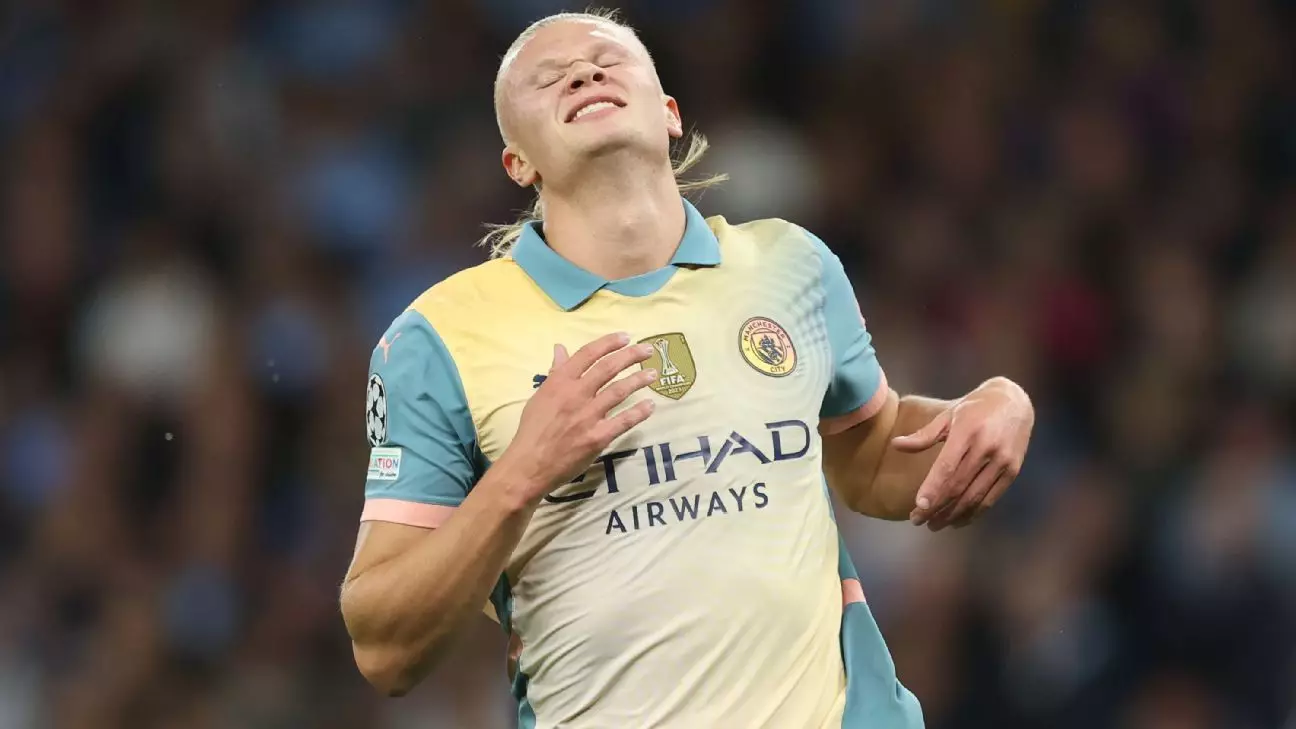The Champions League’s recent revamp by UEFA has set the stage for thrilling encounters that can emerge earlier in the tournament. The intent is clear: older formats often led to predictable outcomes and lackluster matches that failed to captivate audiences until the knockout stages. Entering the new league format provides clubs an opportunity to engage in riveting showdowns without the extended wait. A prime example came to light as Manchester City and Inter Milan faced off again, drawing 0-0 in a match that encapsulated almost everything UEFA envisioned—except for one crucial element: goals.
As the dust settled after the match, it became evident that although this contest was exhilarating, it also demonstrated the fine margins that often separate victory from defeat. Opportunities came and went, particularly for Inter, who would rue a missed chance by Henrikh Mkhitaryan that echoed throughout the stadium. His former Manchester United teammate, Matteo Darmian, also made a curious decision, opting for a backheel pass when a direct approach was the obvious choice. At a venue as intimidating as the Etihad Stadium, such missed opportunities can loom large, and it nearly cost Inter dearly.
Both managers, Pep Guardiola and Simone Inzaghi, had crafted their strategies meticulously, understanding the immense tactical battle taking place. Guardiola, whose reputation for attacking football is well-documented, was forced to reckon with Inter’s disciplined defensive setup. Inzaghi’s team, notorious for their solidity and transitional prowess, effectively stymied City’s attacking efforts. Guardiola’s visible frustration during the first half suggested an admiration for Inter’s defensive capabilities. Watching Nicolò Barella weave through City’s midfield gave him little choice but to lament the difficulties posed by a well-organized opposition that limited creativity.
As the match unfolded, Manchester City appeared to grow into the game. Replacing Kevin De Bruyne, who had succumbed to injury, with Ilkay Gündogan reflected a tactical shift aimed at reclaiming control. Phil Foden’s introduction bolstered the City attack, yet their inability to convert opportunities kept the game in a precarious stalemate. Shots on goal were not lacking; City had their chances, yet both sides concluded the encounter without breaking the deadlock—a stark reminder that football often hinges on uncanny moments of precision.
The performance by Inter not only bolsters their status within the Champions League ecosystem but also firmly establishes them as legitimate competitors. Inzaghi expressed pride in his team’s output, commending their approach against a squad with a reputation for dominance. Martìnez’s late introduction, initially hinting at a strategic gamble, mirrored Inzaghi’s confidence in his squad’s strength, further showcasing the depth of talent at his disposal.
Meanwhile, for Manchester City, the draw serves as a pragmatic reminder of the Champions League’s increasing competitiveness. Having not lost a group stage match on their home grounds for over six years, they may have taken this point as a wake-up call that the road to the title won’t be a walk in the park, even for the favorites. Guardiola’s acknowledgment of Inter’s resolute defensive nature showcased an understanding of the intricate chess match that unfolds on the pitch. Despite emerging unscathed, City’s path ahead may compel them to adapt and evolve further, especially when faced against European elites who challenge their inherited supremacy.
As the match concluded, both sides could draw positives from their performance. If nothing else, it served as a reminder that in the realm of elite European football, complacency can swiftly lead to downfall. Fans and analysts alike left the Etihad buzzing about the possibility of a rematch in the knockout stages. UEFA’s restructuring may allow these two colossal teams to square off anew, with stakes significantly heightened.
Ultimately, they offered a tactical masterclass that reinforced the notion that in football, anything and everything can happen. The ‘beautiful game’ continues to evolve with uncertainty, intrigue, and above all, a testament to the art of teamwork and strategy—elements that will weave into the fabric of the current Champions League season.
